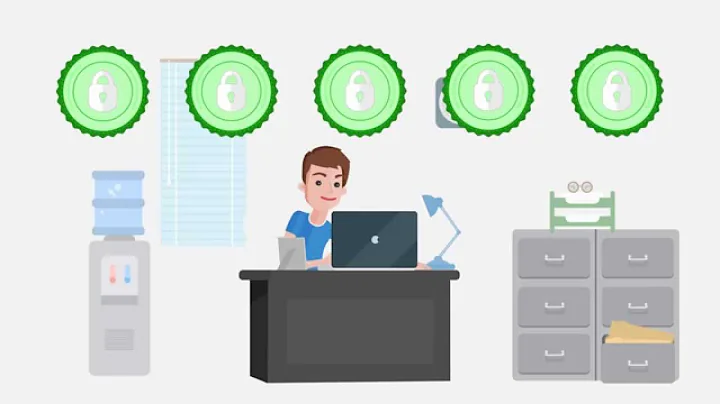Multiple domains with SSL on same IP
Solution 1
I think it is a good idea how to explain what the problem really is with virtual hosts and SSL/TLS.
When you connect to an apache server over HTTP you send a set of http headers along. They look like this:
GET /index.html HTTP/1.1
Host: www.nice-puppies.com
If you have virtual hosting apache will look at the hosts field, then fetch the right index.html for you. The problem is when you add SSL/TLS. The server sets up the encryption before you ever send your http request. Therefor the server doesn't know if you are going to www.nice-puppies.com or www.evil-haxxor.com until after the authentication/encryption is completed. The server can not guess (as sending the wrong certificate gives you a nasty error message).
One solution is a wildcard certificate (as mentioned above), which is valid for *.nice-puppies.com. That way you can use the same cert for multiple domains, but you can't have a *.com certificate (okay, you can, but it would be very bad for everybody else), so in general you will need separate IP for each HTTPS domain.
Solution 2
The real solution to this problem is "Server Name Indication":
http://en.wikipedia.org/wiki/Server_Name_Indication
It's only starting to be rolled out into servers and web clients, so it's not really something you can use now, but hopefully in a few years' time this won't be as big of a problem.
Solution 3
The problem is that the SSL certificate is bound to the IP address not hostname. When the connection comes in on the IP address for an HTTPS request the first action is to establish the SSL communication by passing the server certificate and/or client certificate. During this stage of the connection handshake the Apache server has no way of knowing what the request about to come through is for. This is different for HTTP (non-SSL) traffic as after the connection is established the Apache server can determine the virtual host configuration to use if the client sends the Host header or else it hands it off to the first virtual host configured.
If you had multiple virtual hosts under the same domain you could setup a single wildcard certificate on the IP address and have multiple virtual hosts with different server names defined; however, if those server names are not under the same domain name they would generate client server errors. This would work as the wildcard certificate would be valid for all host names under that domain name. You would need another IP address if the domain names were different as the first certificate defined for that IP address would be the one presented for connecting clients.
Solution 4
Actually, with modern software you CAN serve multiple HTTPS sites over a single IP address, using a new feature called 'SNI - Server Name Indication'.
http://en.wikipedia.org/wiki/Server_Name_Indication
http://wiki.apache.org/httpd/NameBasedSSLVHostsWithSNI
I have yet to use this myself, but it sounds good for internal and intranet sites. Most modern browsers support SNI. IE6 does not support SNI, but IE7 does.
(Correction: 20100426 -- SNI is not supported on Windows XP at all. Windows Vista and above do support SNI. See "Section 2.2.3" at http://msdn.microsoft.com/en-us/library/dd208005%28v=PROT.13%29.aspx#id8 ).
Solution 5
I am working on same issue. As my test, IE7 and later (Only in Win7 & Vista)/Chrome/Firefox/Safari/Opera support "Server Name Indication". In fact, if browser uses Tsl 1.0, It supports "Server Name Indication".
Related videos on Youtube
Comments
-
nitins almost 2 years
I know that a dedicated IP is needed for setting up SSL. What happens if we add SSL for domains sharing an IP ? (Namevirtualhost)
-
user1686 over 14 yearsDuplicate of serverfault.com/questions/126072
-
maxschlepzig almost 4 yearsDoes this answer your question? SSL certificate selection based on host-header: is it possible?
-
-
bburro over 14 yearswell i'm puzzled by the question. The Q's title says black the content says white.
-
bburro over 14 yearsthis is the white one
-
Sam Cogan over 14 yearsGood explanation, but you could have a UC cert that will allow multiple domains in one cert
-
nitins over 14 yearsYou mean the certificate first added in Apache conf will be used for both ?
-
Warner over 14 yearsAlso SNI. Your statement is no longer definitive, pehrs. Your explanation is historically accurate but no longer reflects current technologies.
-
pehrs over 14 yearsSNI doesn't (yet?) work with IE6 on Windows XP. Which kind of limits the value, considering the market share. I believe the original user was more interested in what would happen than the set of hacks that exist to get around it.
-
user1807902 over 14 yearsIf you have two certificates - for site A and B, and apache loads configuration for hosts in sequence A.conf, then B.conf, then it will use certificate from A.conf. Or vice versa.
-
Nasko about 14 yearsWith IE, support doesn't come from the IE version, rather comes from the underlying OS version. Vista and above support SNI. XP doesn't, so even with IE8 on XP, you won't get SNI.
-
t316 almost 12 yearsTried to correct the spelling mistake at the end SHTTP to HTTPS but this was rejected as too small an edit.




